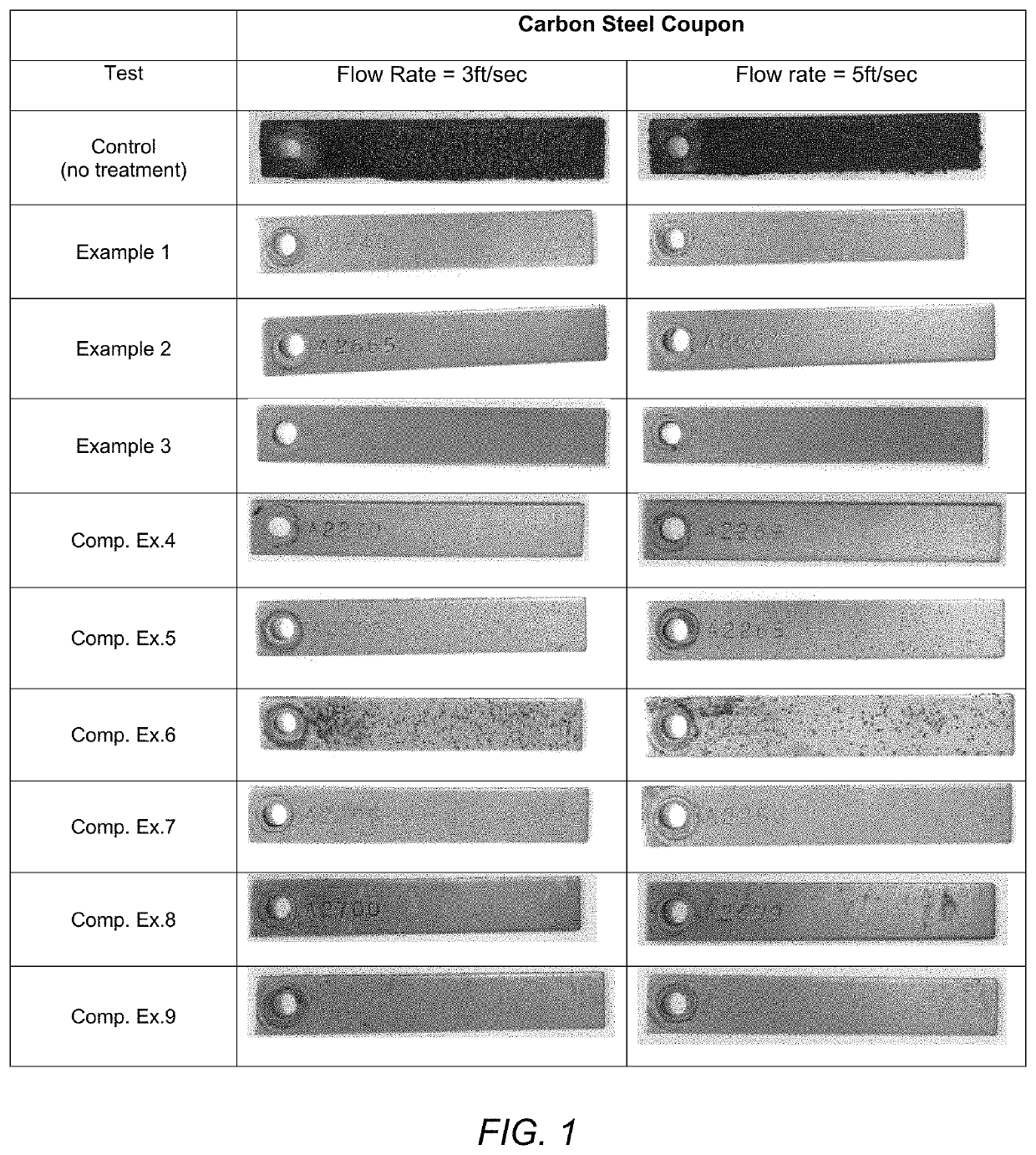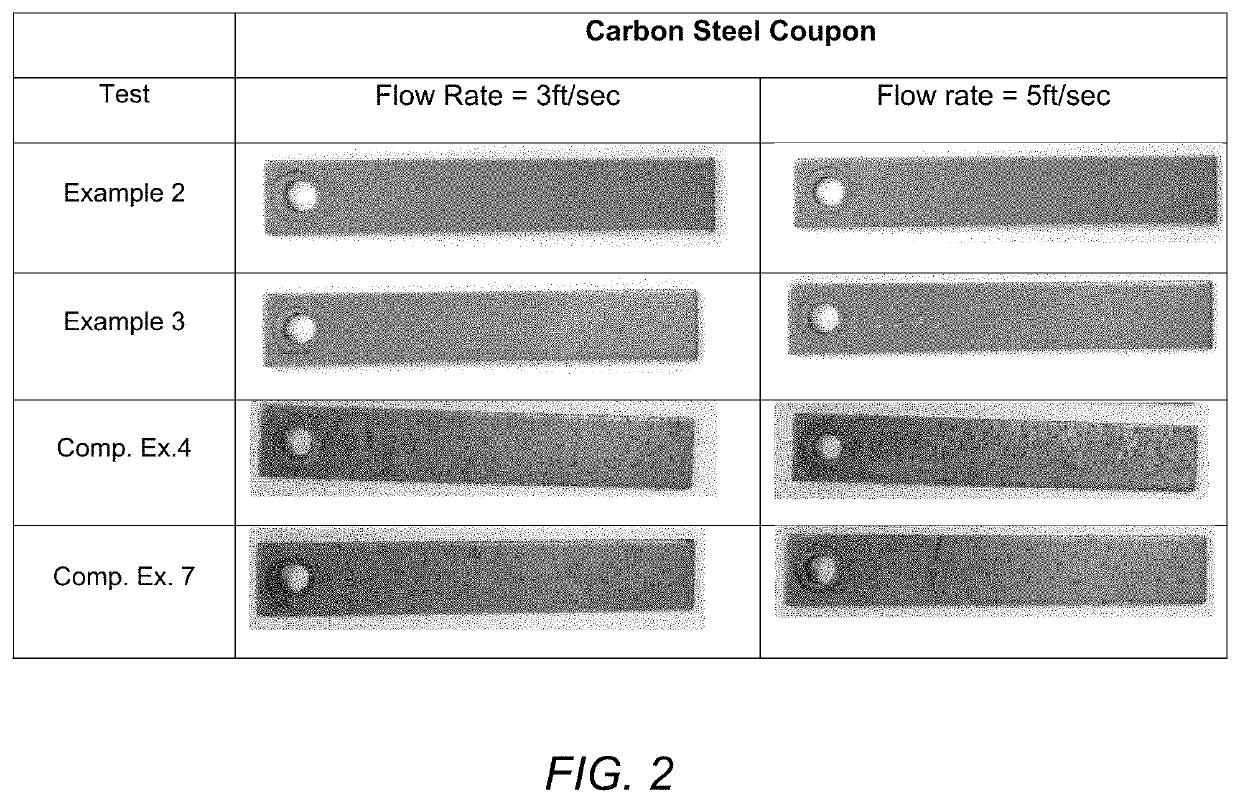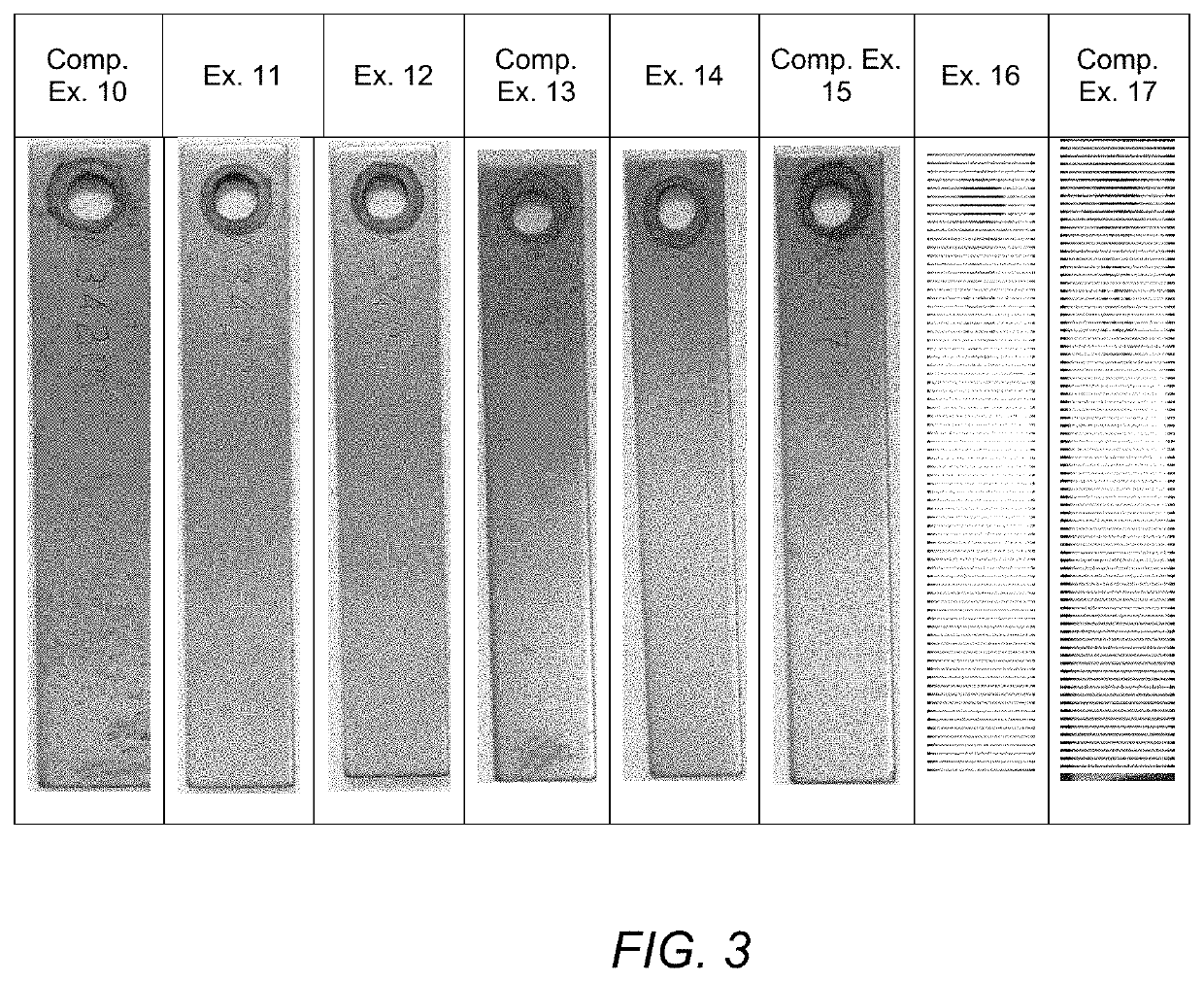Composition and method for inhibiting corrosion and scale
a technology of corrosion inhibition and scale, applied in the direction of chemistry apparatus and processes, specific water treatment objectives, water treatment water nature, etc., can solve the problems of unsatisfactory use, increase the cost, and harm to the environment, so as to improve the inhibition of corrosion and scale, inhibit corrosion, and prevent adverse effects
- Summary
- Abstract
- Description
- Claims
- Application Information
AI Technical Summary
Benefits of technology
Problems solved by technology
Method used
Image
Examples
Embodiment Construction
lass="d_n">[0028]Several lab tests were run to test the effectiveness of various compositions according to the invention. Compositions according to the invention were evaluated using spinner tests to simulate flowing water over metal components in a water system. Each spinner test set-up comprises a stainless steel container of water with four metal coupons (mild steel coupons (C1010) and copper coupons (CDA 11) were used) suspended in the water in each container from holders hanging from a rotating shaft. The shaft rotates the coupons in the water in the stainless steel container at 147 rotations / min, representing a flow rate of 3-5 ft / s, depending on coupon distance from center of the rotating shaft. The initial volume of water used in each spinner test was characteristic of corrosive, low hardness water typically found in water systems. The water used had the characteristics shown in Table 1 below.
[0029]
TABLE 1Low hardness, corrosive water used in Spinner test experimentsCharacte...
PUM
| Property | Measurement | Unit |
|---|---|---|
| concentration | aaaaa | aaaaa |
| water soluble | aaaaa | aaaaa |
| pH | aaaaa | aaaaa |
Abstract
Description
Claims
Application Information
 Login to View More
Login to View More - R&D
- Intellectual Property
- Life Sciences
- Materials
- Tech Scout
- Unparalleled Data Quality
- Higher Quality Content
- 60% Fewer Hallucinations
Browse by: Latest US Patents, China's latest patents, Technical Efficacy Thesaurus, Application Domain, Technology Topic, Popular Technical Reports.
© 2025 PatSnap. All rights reserved.Legal|Privacy policy|Modern Slavery Act Transparency Statement|Sitemap|About US| Contact US: help@patsnap.com



